6 Ways Covid-19 Construction Delays Can Impact Property Buying Decisions
May 2, 2021
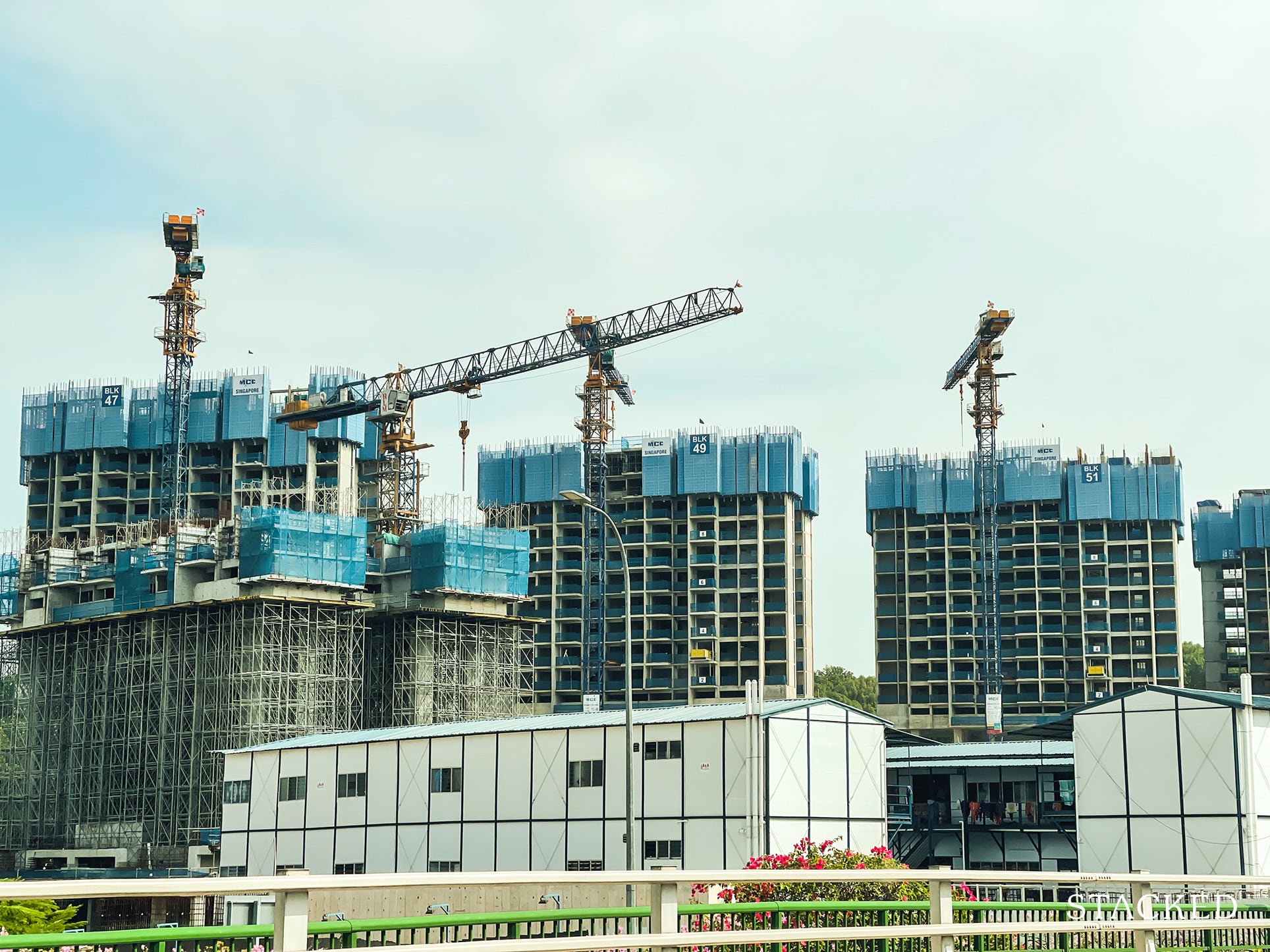
Covid-19 has resulted in further delays to housing projects in Singapore. To date, about 43,000 homes will face delays of six to nine months, and that’s only for the HDB housing segment. In the private sector, construction firms are already highlighting a significant manpower crunch, which puts further pressure on developers trying to meet their five-year ABSD deadline. While some buyers may shrug off the delays are inconsequential, others are aware that they can have significant impact – and here’s how you might factor it into your buying decision:
The subtle but important effects of Covid-19 construction delays
- Increased cost of temporary accommodation
- Higher renovation costs
- Losses for landlords
- Delayed construction affects MRT stations too
- A stronger interest in resale properties (and even close to TOP new launches)
- Potential impact on quality
1. Increased cost of temporary accommodation and renovations
A delay of six to nine months typically means having to rent. For families who have already leased a property, extending it by six more months can be disproportionately expensive.
It’s harder to negotiate a discount for shorter leases (less than a year). In many cases a landlord already has replacement tenants lined up; the standard practice is to start marketing and looking for new tenants about three months before the existing lease expires. If a landlord already has a new tenant willing to sign a 12-to-24-month lease, they’re unlikely to pass this up, just to extend the existing tenant’s lease by six to nine months.
This often means forking out a higher rate for the extra six to nine months, or suffering the inconvenience of having to move again for this short period.
The delays will also impact upgraders who intend to buy projects near TOP.
One popular tactic is to buy condos that are close to completion, before selling the flat. This way, the family can continue to reside into the flat, and move into the condo as soon as it’s built, without any interim housing.
However, if you buy a condo before selling their flat, they’ll have to pay the Additional Buyers Stamp Duty (ABSD) upfront. They can only get ABSD remission if they sell their flat within six months of buying the new condo; any later and they’ll lose the stamp duty fee.
As such, an unexpected construction delay of six to nine months will leave these families in a lurch. They cannot postpone the sale of their flat for too long, lest they risk losing the ABSD fee; but at the same time they have no new unit to move into. This could derail the initial plan to avoid interim housing.
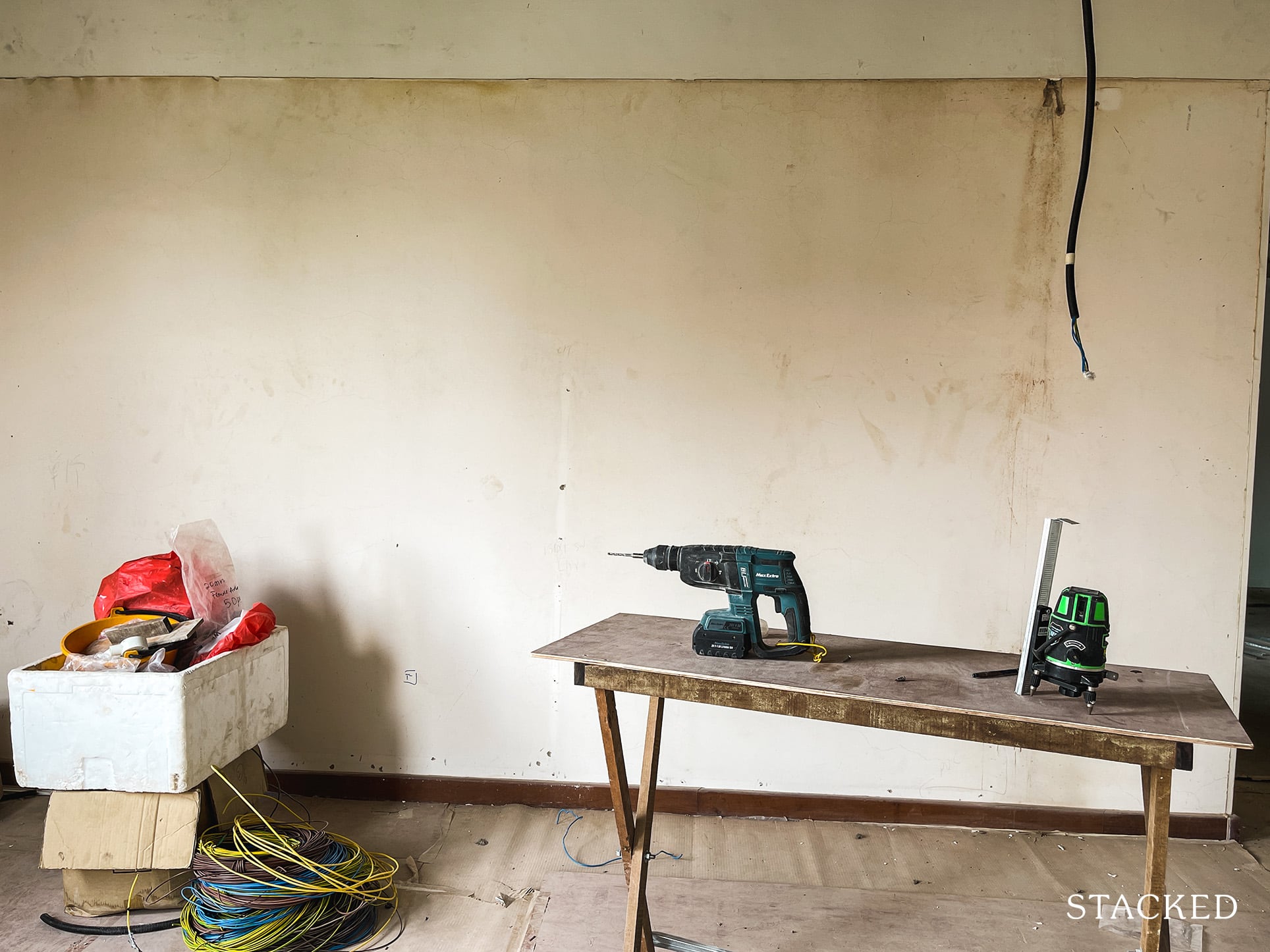
2. Higher renovation costs
We already saw reports of this in 2020, citing renovation costs of 10 to 20 per cent higher. This is due to the lack of available labour from countries like Malaysia, where contractors tend to charge lower rates.
According to a contractor we spoke to, the cost of local carpentry is one of the biggest factors. Kitchen cabinetry, along with custom wood surfaces and furniture, have seen costs jump by as much as 30 to 40 per cent. He also expressed the concern that: “It may not go back down. Even when workers from abroad return, maybe the current pricing will stay as it is, because the industry has learned that the market can accept it. In this industry, once the price goes up, it’s very rare for it to go back down; the reason why it went up is beside the point.”
Perhaps a bigger problem, however, is the time it takes for renovations to be complete. One property investor, who recently decided against a two-bedder investment at this time, told us renovation delays were part of his consideration:
“Maybe there’s a six-month delay for construction. After that, the renovation may also be delayed, so maybe another six months. In the end it can be a whole extra year before there is any rental income. While waiting, I still have to pay the housing loan.”
This leads to the issue of…
3. Losses for landlords
Six to nine months of lost rental income can be a disincentive to landlords. A landlord we spoke to expressed that: “Usually I expect to recover my renovation costs, around $40,000 to $50,000, within the first year. But if there’s six to nine months delay, plus slower renovation, I guess this is out of the question. It’s not a huge sum in the bigger picture, but it is a setback.”
More from Stacked
So many readers write in because they're unsure what to do next, and don't know who to trust.
If this sounds familiar, we offer structured 1-to-1 consultations where we walk through your finances, goals, and market options objectively.
No obligation. Just clarity.
Learn more here.
HUDC: Good En Bloc Potential in 2017?
It’s no secret that developers are now hungry for land in Singapore. This can be seen by the record more…
Some other landlords consider a construction delay to be no less devastating than a “six-to-nine-month vacancy”, and are content to wait out the Covid-19 period before buying under-construction condos.
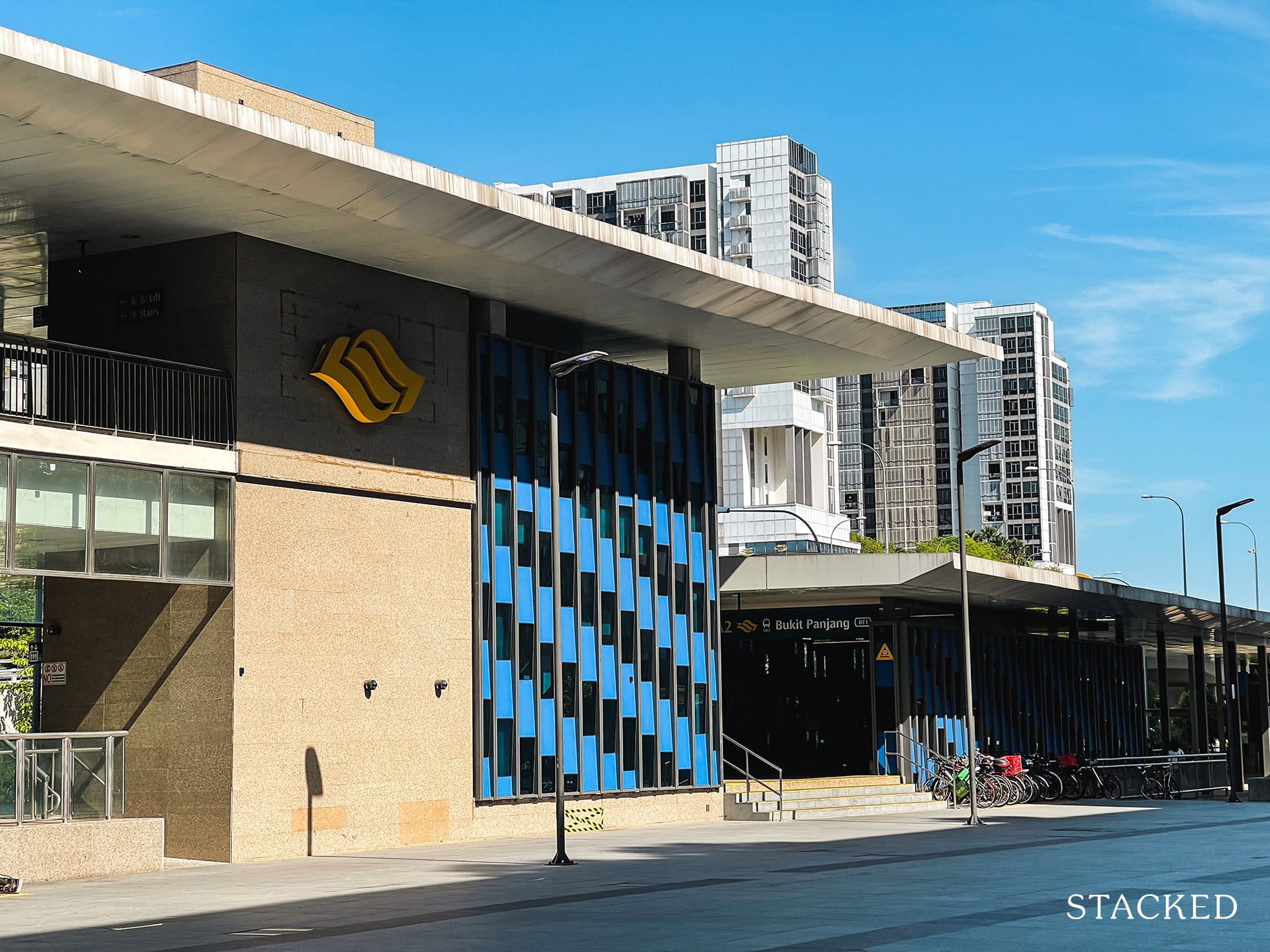
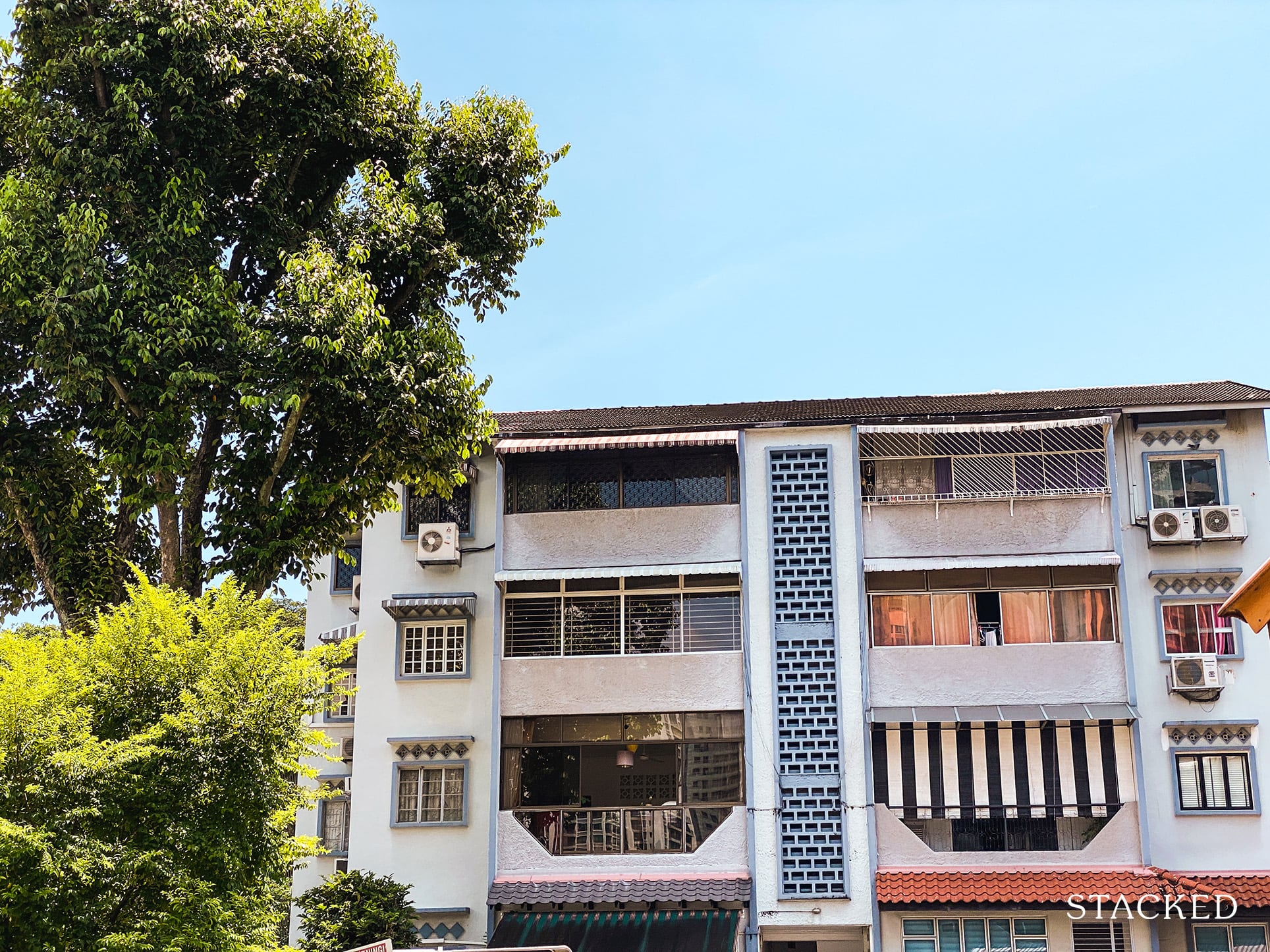
Property AdviceFirst Time Landlords Take Note: Here’s How Much You Need To Save Before Buying A Rental Property
by Ryan J. Ong4. Delayed construction affects MRT stations too
Some MRT lines have been delayed by up to a year. These include:
- All stations in the third and fourth stage of the Thomson-East Coast Line (TEL)
- Jurong Region Line
- Stations in stage six of the Circle Line
- The entire North-South Corridor
This could potentially impact nearby properties, especially if home owners or landlords expect the lines to be up and running by the time the condo is complete. In addition, an MRT station under construction nearby can serve as a disamenity – it means putting up with the noise and dust of ongoing construction, which you would hope is over by the time you move in.
While it’s not the biggest deciding problem, a delayed MRT station can sometimes tip the scales, in deciding which development a buyer goes for.
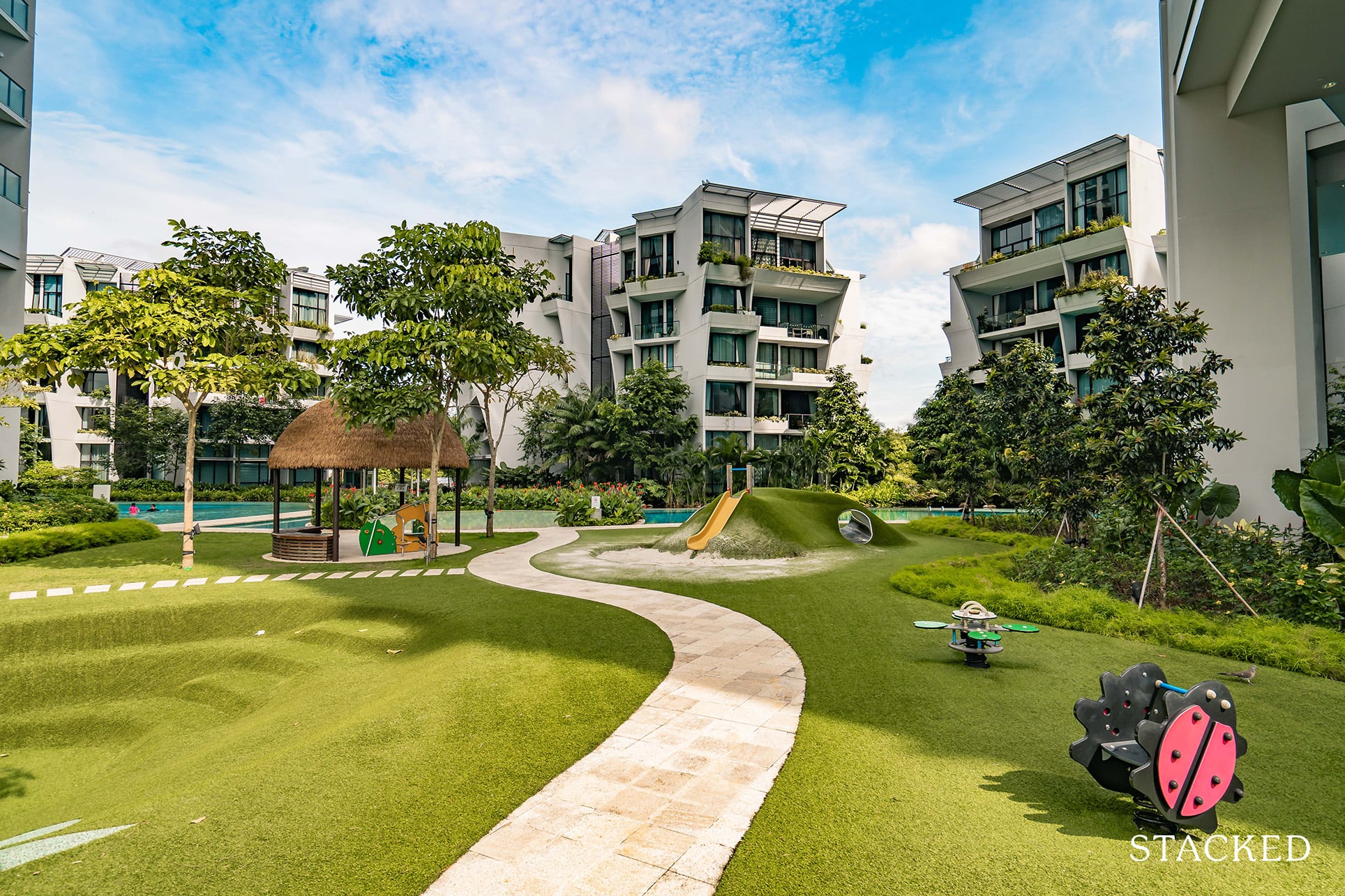
5. A stronger interest in resale properties (and even close to TOP new launches)
We’ve mentioned this as one of the reasons resale condos are looking up, for 2021. It’s also true for resale flats, which have escaped the construction delays of their BTO counterparts.
Some buyers need properties that they can move into as soon as possible; and the risk of a delay as long as six to nine months isn’t tolerable. As such, we suspect construction and renovation delays are at least partially contributing to the rise in resale flat and condo volumes; and perhaps even Cash Over Valuation (COV) for resale flats.
It’s also worth noting that the five-year Minimum Occupation Period (MOP) for HDB flats begins at the time of key collection, not purchase. As such, construction delays are also prolonging the MOP.
There is a case to be made too for projects that are close to TOP. In one of our recent articles, you can see that a good chunk of these are close to selling out completely – and with the demand rising for ready to move properties – you can in fact possibly expect to see price increases in some of these.
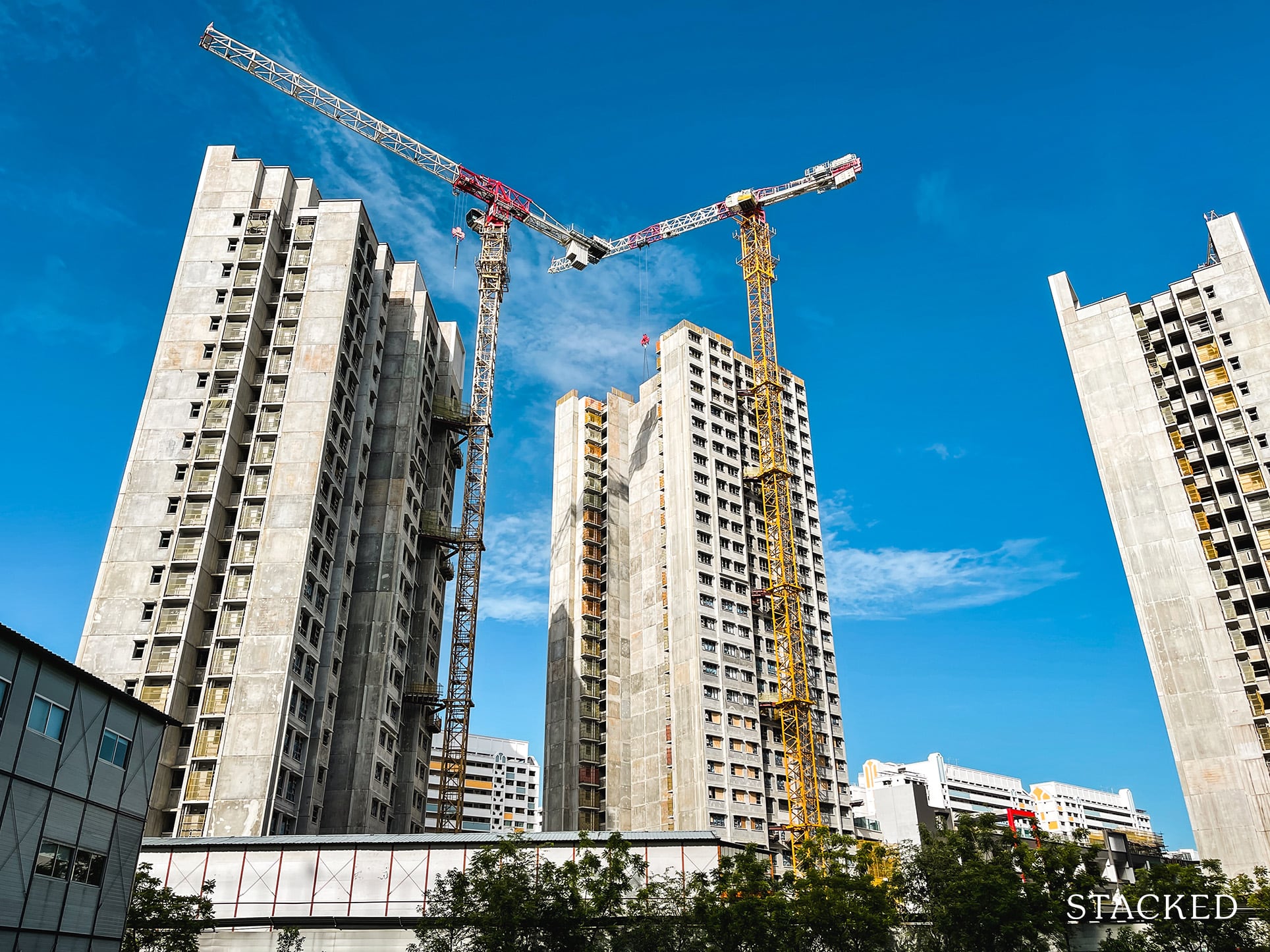
6. Potential impact on quality
Developers have five years to complete and sell a project, lest they end up paying 30 per cent ABSD on the land price. While six-month extensions have been granted on these obligations, we don’t have a clear idea of how things are progressing in construction.
Without sufficient manpower, and tight logistical difficulties, developers may still be rushing completion – even with the extension. Pressure to finish work fast will be more intense than ever, with investors complaining about lost rental income, and homeowners anxious to avoid more temporary housing costs.
Buyers who can afford to wait may decide to hold out, considering the pressure that developers are under. This is on concerns that developers may end up cutting corners, using sub-par contractors (as their usual contractors are unavailable), and getting lower quality materials.
Of course, no developer will ever say there’s a chance of that; and realtors are quick to point out that BCA maintains strict standards. We’ll only know if things have gone wrong much later, when buyers move in and can check for defects.
It’s up to individual buyers to decide how much they trust the built environment authorities. Those who answer “not enough” will probably stick to resale units instead for now.
While Covid-19 construction delays are not the biggest factor in property purchasing, they shouldn’t be overlooked
As a buyer, do take the time to consider how potential delays could affect you. There isn’t anything you can do to prevent a delay; but you can prepare for it financially. For example, assume rental income will come in six months later, when considering your shoebox unit investment.
Or as a homeowner, be prepared for the worst; such as needing an additional six months of accommodation, or not having an expected MRT station up and running by the time you move in.
At Stacked, we like to look beyond the headlines and surface-level numbers, and focus on how things play out in the real world.
If you’d like to discuss how this applies to your own circumstances, you can reach out for a one-to-one consultation here.
And if you simply have a question or want to share a thought, feel free to write to us at stories@stackedhomes.com — we read every message.
Frequently asked questions
How do Covid-19 construction delays affect property buyers in Singapore?
What are the financial impacts of construction delays on property owners and investors?
How might construction delays influence the decision to buy resale properties or near-completion new launches?
Can Covid-19 delays affect the quality of new property developments?
In what ways do construction delays impact nearby infrastructure projects like MRT stations?
What should buyers consider regarding delays when planning their property purchase?
Ryan J. Ong
A seasoned content strategist with over 17 years in the real estate and financial journalism sectors, Ryan has built a reputation for transforming complex industry jargon into accessible knowledge. With a track record of writing and editing for leading financial platforms and publications, Ryan's expertise has been recognised across various media outlets. His role as a former content editor for 99.co and a co-host for CNA 938's Open House programme underscores his commitment to providing valuable insights into the property market.Need help with a property decision?
Speak to our team →Read next from Property Market Commentary

Property Market Commentary How I’d Invest $12 Million On Property If I Won The 2026 Toto Hongbao Draw

Property Market Commentary We Review 7 Of The June 2026 BTO Launch Sites – Which Is The Best Option For You?

Property Market Commentary Why Some Old HDB Flats Hold Value Longer Than Others

Property Market Commentary We Analysed HDB Price Growth — Here’s When Lease Decay Actually Hits (By Estate)
Latest Posts

Singapore Property News REDAS-NUS Talent Programme Unveiled to Attract More to Join Real Estate Industry

Singapore Property News Three Very Different Singapore Properties Just Hit The Market — And One Is A $1B En Bloc

On The Market Here Are Hard-To-Find 3-Bedroom Condos Under $1.5M With Unblocked Landed Estate Views




































0 Comments